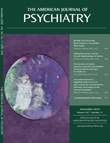Questions on Conflict of Interest
To the Editor: We are writing to inquire about how the Journal handles issues of conflict of interest, both financial and intellectual. We raise these questions in the interest of stimulating discussion and encouraging greater transparency, not because we believe there is necessarily one right answer to any question.
What is the operational basis of the Editor's evaluation for possible influence from disclosed financial relationships? Given that such influences can be difficult for nonspecialists to detect and may operate beyond the awareness of authors themselves, what criteria are used to judge whether influence has occurred?
1) Is potential conflict of interest one of the criteria taken into account when inviting authors of editorials or review articles? For example, if faced with a choice of several possible authors, does the Journal give preference to those without potential conflicts of interest, all other factors being equal?
2) Does the Journal's conflict of interest policy take into account so-called intellectual conflict of interest as well as financial conflict of interest? Some professional societies are beginning to pay attention to this type of conflict in relationship to practice guidelines (1).
Restrictions on authorship have costs of their own, including exclusion of the contributions of experts in a field, and should not be undertaken lightly. However, the argument for preferring authors without financial relationships with industry seems particularly strong in the case of editorials and reviews, the value of which resides principally in the reliance that readers can place on the opinions of the authors. Advocating norms of this sort is not to suggest that industry relationships are necessarily problematic in themselves, but recognizes that certain activities may be incompatible with playing an active role in developing treatment recommendations for the field, as is the case for the development of DSM-5 (2).
1. : The vexing problem of guidelines and conflict of interest: a potential solution. Ann Intern Med 2010; 152:738–741Crossref, Medline, Google Scholar
2. http://www.dsm5.org/about/Pages/BoardofTrusteePrinciples.aspx Google Scholar



